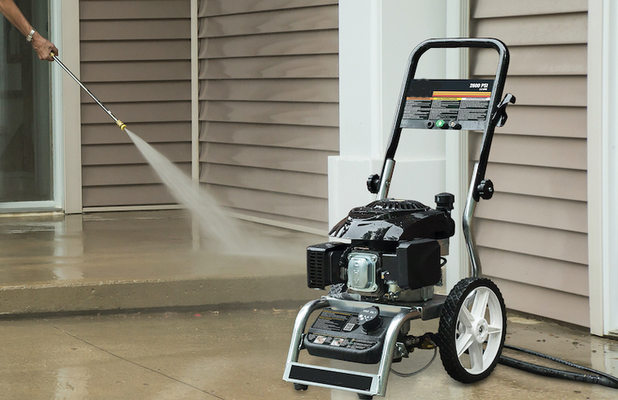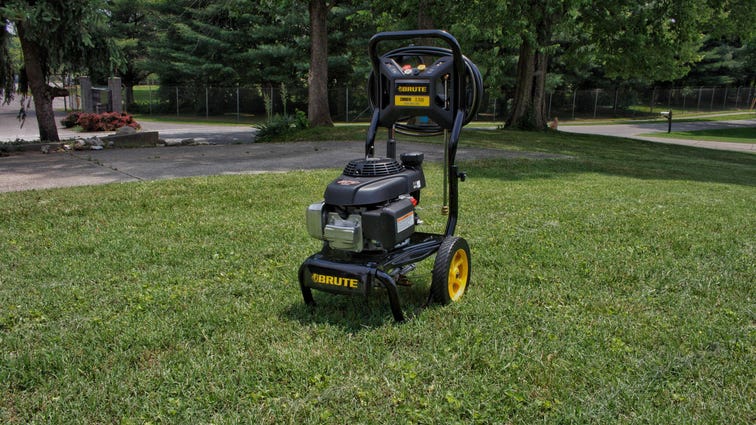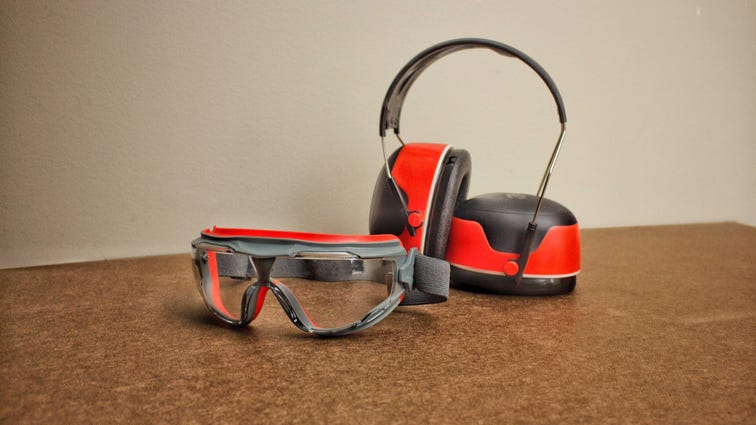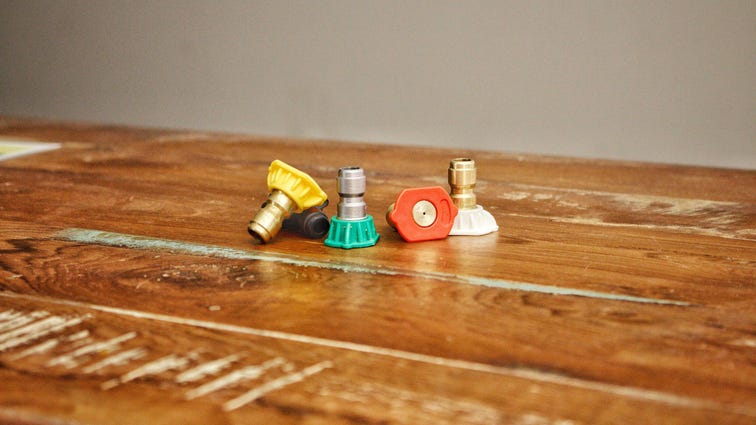
How to use a pressure washer: A guide for beginners
Pressure washing is a great way to clean and restore all kinds of surfaces around the exterior of your home. Here's what you need to know to get started
A pressure washer can help you quickly clean large areas of all kinds of hard outdoor surfaces. You can use a pressure washer to spray off a wooden deck, siding, a car or a concrete surface such as a patio, walkway or driveway. They're great for when the old "brush and soapy water" routine would take forever. Pressure washing is also useful because it can get rid of some of those hard-to-deal-with soils like grease, tar, gum, wax or even rust.
In this guide I'm going to tell you about the basics of buying a pressure washer, what kinds of jobs a pressure washer is good for and how to apply a pressure washer to various surfaces. I'll wrap up by talking you through a few examples of a pressure washer in action.
When do I need a pressure washer?
A pressure washer is useful for cleaning any exterior surface that has caked-on dirt, grease, plant residue or other material across a large surface area.
To prevent injury, avoid pressure-washing anything living, whether it's people, animals or plants. If you're pressure-washing near plant beds, use garbage bags or other plastic coverings to keep the spray from damaging your plants.
Since pressure washers are mainly used for larger or dirtier jobs, it also doesn't make a ton of sense to use them on very small areas, unless it's a stain that you just can't get rid of. If it takes longer to pull the machine out and set it up than the amount of time you'll be using it, consider cleaning by hand.
What kind of pressure washer do I need?

Pressure washers come in two varieties: gas and electric. The price can range from about $100 for a low-end consumer-grade model up to thousands for larger commercial units.
The specs associated with pressure washers are pounds per square inch and gallons per minute. Psi tells you the force of the spray. GPM tells you the volume of water passing through the spray wand.
If you want to save time and backache cleaning off your sidewalk, deck or patio, or maybe you're looking for an easier way to wash the car, look for a pressure washer with specs under 2,000 psi and 2 GPM. You should be able to find one at your local home store for between $100 and $300.
For more cleaning power -- maybe you have some tough stains on your driveway or your deck, or you want to clean the exterior of your house -- look for a pressure washer in the range of 2,000 to 3,200 psi and 2 to 3.2 GPM. Most homeowners won't need a pressure washer with higher specs.
Do I need protective gear to operate a pressure washer?

It's important to remember that pressure washers are not toys. You will definitely want to wear protective gear and avoid spraying other living things, such as pets, plants or pesky neighbors. For comparison, a standard garden hose probably has a psi of about 60, fire hoses start around 100 psi, and a medium-duty pressure washer can have a maximum pressure of 2,800 psi. Make sure to put on eye protection when you use a pressure washer. Ear protection isn't a bad idea either for any loud, gas-powered model.
The trick to getting such high psi from a normal garden hose connected to your pressure washer is the pump. Each pressure washer, electric or gas, has a pump that pressurizes the water before sending it to the spray wand.
How do you hook up a pressure washer?
The pressure washer itself has one connection for a standard garden hose to bring water to the pump and another connection that connects the pump to a high-pressure hose that has the spray wand on the end of it. Most units have some type of siphon hose for detergents, and any electric pressure washer will have a power cord.
What do the colors on pressure washer tips mean?

The spray wand of your washer should come with different interchangeable tips that allow you to customize angle of spray for each job. Changing the angle of the spray also changes how hard the water will hit the surface. The sharper the angle, the less direct pressure on whatever surface you intend to spray.
A spray of 0 degrees concentrates the water into one small powerful stream. As you increase the angle, the spray spreads out across a wider area, which decreases the power of the spray at any one point. The greater the angle of the spray tip, the lighter the touch on the surface you want to clean.
There is no exact guide for which tip is most appropriate for which job. The combination of spray angle and the psi rating of your washer will determine the end result. If you're not sure about the hardiness of the surface you want to spray, start with the sharpest angle tip and work your way up.
Universal color coding should also help you decide which tip to use. Usually, the tips map to the following order, from most dispersed spray angle to the most direct: black (65 degrees), white (40 degrees), green (25 degrees), yellow (15 degrees), red (0 degrees). Still, it's a good idea to check your manual to determine the best tip for the job for your specific pressure washer.
How long can you run a pressure washer?
Assuming you have correctly set up your pressure washer, there should be no real limit to the amount of time you can run an electric model. If your unit is gas-powered, the tank capacity will be the limiting factor for run time.
What's the difference between a pressure washer and a power washer?
A pressure washer uses water at ground temperature. A power washer uses a heating element to heat the water before spraying it out. Because of the heat, power washers are more suited to removing stains containing living bacteria, like mold. Most residential washers are pressure washers and not power washers.
Can you damage concrete with a pressure washer?
Absolutely. The main contributor to unwanted surface damage with pressure washers is using the incorrect tip. If you're unsure, or if you're using a new pressure washer or washing a new surface for the first time, it's always best to start with a wide spray tip and switch to a tip with a more direct angle as needed. The white 40-degree tip is a good place to start.
How do you use soap with a pressure washer?
You can use almost any type of liquid soap or detergent with a pressure washer, although there are pressure washer-specific detergents for jobs of all types. Your pressure washer will have a siphon hose or basin of some type, which you fill with the desired soap. Make sure any detergent cutoff valves are on, and then you can run the pressure washer as you normally would.
For a gas pressure washer, add a fuel stabilizer following the instructions in your manual. Also, follow the manual for instructions on how to clear any detergent. Finally, run a pressure washer pump saver through your washer by connecting it to the hose inlet. The engine doesn't need to run during this step, nor does the spray wand or high-pressure hose need to be connected. Once you see the white foam coming from the high-pressure hose connection, you're done.
For an electric pressure washer, you can omit the fuel stabilizer step.
And there you have it. We breathed some new life into things around the house without too much trouble. Pressure washing can be a great home maintenance tool. Get the right machine from us and be safe!
Check our products here > https://techafrica.co.zw/shop/ or call us on +263772156504.



.png)
.png)